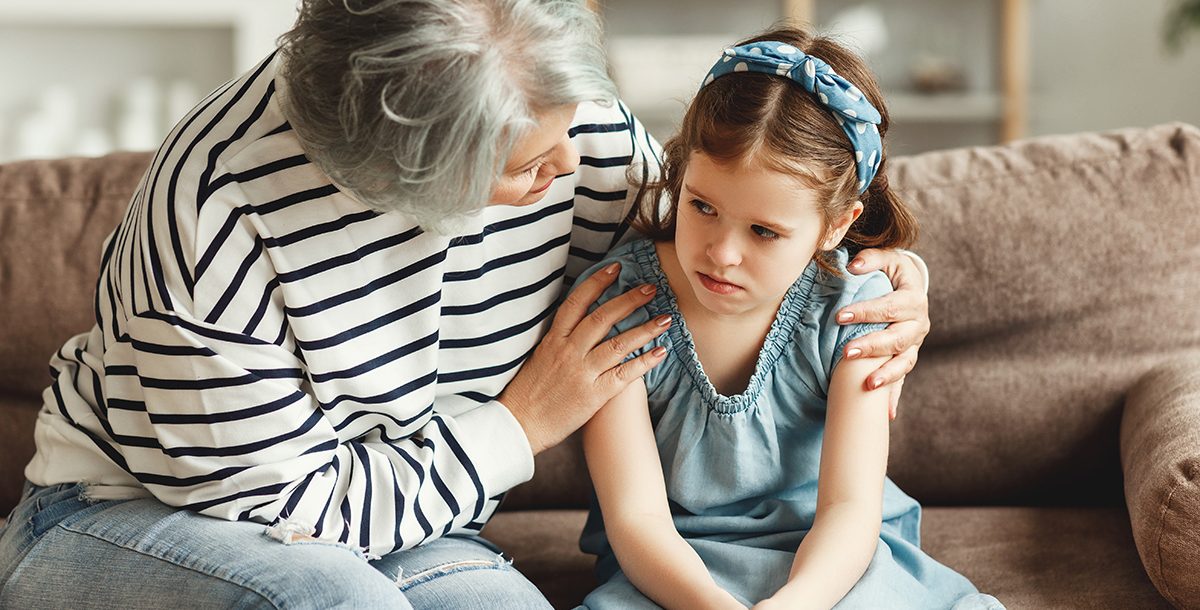As the COVID-19 pandemic continues to affect our lives in a variety of ways, some of the most vulnerable of us have become collateral damage.
A recent study in the October 2021 issue of “Pediatrics,” the official journal of the American Academy of Pediatrics, notes that more than 140,000 children in the United States lost a parent or grandparent caregiver to COVID-19 between April 1, 2020 and June 30, 2021. Additionally, children who were not white and non-Hispanic were 1.1 to 4.5 times more likely to experience this loss.
As we are in the holiday season, an emotionally intense time when the pain of a loss can deepen, learn how adults can best help the children in their lives deal with grief and loss.
How grief affects kids
Children who experience the death of someone, such as a parent or grandparent, lose more than just the person they are close to. Aside from basic human needs such as food, shelter and clothing, a child who has at least one caregiver die also loses guidance, care, affection and nurturing provided by that person. They are also more vulnerable to mental health issues, poverty and abuse.
Age is key
While the loss of any close loved one is difficult to bear, whether it’s from COVID-19 or another ailment, children are affected and navigate this loss differently from adults. And while the adults around them likely want to help, how they do so should depend on the child’s age.
How children deal with the loss of a close loved one is affected by their developmental level.
- Preschool-age: While they may be young, they are old enough to recognize the void left by the person who has died. However, they don’t understand that death is permanent. Adults caring for children in this age group should explain that the person is no longer here and can’t come back, but you are here for them and they are safe.
- School-age: Once children are old enough to be in school, around the age of six, they have a more mature understanding of death. They no longer think it is temporary or reversible, but tend to have emotional reactions that involve regressions, such as acting younger than their age or worrying about who will take care of them now that their late caregiver is no longer here.
- Older children and teenagers: While not completely the same, pre-teens and teenagers may exhibit similar reactions and emotions. Many children cope with death by exhibiting anger, withdrawing from friends and family, performing poorly in school and regressing. Teens in particular may also be more impulsive and reckless, while also directing their anger toward the rest of their family.
How you can best help a grieving child
First of all, it is important to remember that every person grieves differently, regardless of age, gender or otherwise.
That being said, some ways to help children navigate their loss and the grieving process include:
- Offering comfort and reassurance: A child who has lost a caregiver has also lost the affection and attention they used to get from that person. Adults who show them more reassurance and care can make them feel safer and secure. Additionally, if you are grieving this loss as well, share it with them. They will likely feel less alone knowing that others are experiencing similar emotions to their own.
- Label emotions: Speaking of emotions, give them names when you discuss how this loss has you feeling. Children, especially younger ones, may have trouble expressing how they feel. Using the names of feelings you are experiencing, such as “sad” or “lonely,” can help them better understand their own. Don’t forget to give them the space to ask questions or to just talk out how they feel.
- Use simple language: This is especially useful for very young children whose vocabularies are still limited, but using clear, direct words to describe death and the current situation helps them better understand. Make sure to keep the details to a minimum, however, and never lie to a child about death. It may seem like you are sparing their feelings to be less than honest, but it could lead to distrust later.
- Explain what to expect: Children thrive on routine. It makes them feel safe knowing what to expect. The death of a close loved one can leave them feeling untethered or uncertain. Explain what in their day-to-day life will change, such as who will be cooking dinner going forward or who will take them to school in the mornings.
- Honor and remember them: Children learn how to say goodbye at a young age and understand the concept of a goodbye as young as three. At any age, giving a child the opportunity to say goodbye to the person who has died can bring them closure and comfort. Additionally, allow them to choose which services, if any, they want to attend, and even consider giving them a special role or decision should they decide to participate.
Age affects how children understand death or manage the grieving process. However, the first step is simply being there for them and providing a safe space so they can cope with the loss they are experiencing.
Also, be sure to recognize that professional intervention may be necessary to help children understand their loss, remember the person and process their emotions. Consider reaching out to a qualified mental health professional for children who show signs of grieving for a long period of time, lose sleep or their appetite, are afraid of being alone, continue to act much younger than their age, no longer want to participate in daily activities or other more serious signs.
Learn more about the pediatric and mental health services we offer at Mercy Health.






